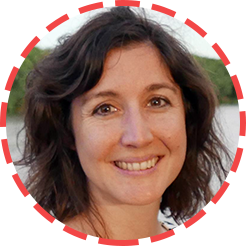If you are considering Swiss public school for your child – way to go! In fact, the Swiss public school system ranks as one of the best in the world. However, as with all school choice options, it might not be the best fit for all children.
In this article, our Client Manager Liz, (mum to a child at her local Swiss public school) shares the positives, whilst looking at the options available to navigate the challenges that may arise.
The positives
It’s free
Why not start with the most obvious positive? If you choose to go local schools are free, and yet they are well funded and resourced.
“This year alone my daughter has been on a theatre trip, a sledging day, a visit to a local farm, a fairground and a vineyard”
Goodbye gas-guzzling cars, hello childhood independence
Local means local. If you enrol your child in your local Swiss public school, your child will be offered a place at your local school. For most people, this means walking/cycling distance from your home. In fact, the commute can really make you feel like part of your local community. Equally important for both the environment and your stress levels. For one thing it’s wonderful not to need the car! In addition, as your children grow, they can make the journey themselves.
Community spirit and speedy integration
Parents often tell us that they really start to feel a part of their community when their children go to the local school. Information about local events, elections and referendums is communicated through the school and this can be especially useful if you are planning on being in Switzerland long term.
Aside from this point, some TutorsPlus families who “go local” talk of feeling more integrated and settled in Switzerland – it’s nice to feel a part of something!
The curriculum
Each individual canton is responsible for its own curriculum and as such, there are differences in what and how your child will learn depending on where in Switzerland you live.
However, in 2009, most Swiss cantons entered the HarmoS agreement, which has resulted in a more coordinated approach across the different linguistic regions.
Primary education in Swiss public schools
During the first 2 years of school, the programme tends to follow a nurturing, play and inquiry-based style with a more structured curriculum kicking from the third year.
One parent tells us that she found the teaching style and lessons in her son’s primary school to be very ‘Montessori esq’. Whilst another enthuses about her son’s once a month ‘forest school’, which involves the class spending the day in the local forest in a ‘classroom’ that the children construct from wood.
“From the ‘pauses qui bougent’ (fun moments during which the children take a break to dance or sing a song) to the lively moments in the Salle de Gym, all mixed in with plenty of formal learning. We really feel that the balance between learning and fun is perfect.”
As children progress through the system, they are fast expected to become autonomous learners. In other words, the gentle approach in the early years provides an excellent foundation as they develop a genuine enthusiasm for learning and a respect for their teachers.
Students are assessed regularly and at age 12 they are streamed for secondary school pathways.
Secondary education in Swiss public schools
Those whose children opt for the Matu are usually very complimentary about the fact that it is undoubtedly the most straightforward way to gain entrance to Swiss universities. Which are well regarded and provide an excellent quality of education at a comparably low cost.
The swiss regard the vocational programme very highly and there is no suggestion that it is for less intelligent students. Instead, families believe the Swiss system recognises that everyone’s strengths lie in different areas and pursuing the academic path is not for all. Although, that is not to say that parents never look for a private school option to keep their children in the university stream.
Learning for grown-ups too!
For parents who don’t speak the local language, German, French or Italian classes are offered free of charge. For a system that is often criticised for being too ‘closed off’ for expats, we think this is a big olive branch. One of our clients tells us how her husband has taken advantage of these classes and made friends along the way, got to know the school and staff more and of course, improved his language skills!
In addition, each commune has a Parent-Teacher Association, and we think it really pays to become involved in this.
“I’ve attended talks on bullying, online harassment, and a workshop on helping children deal with stress. I was a bit nervous before the first meeting but took a deep breath and went along and am so glad I did.”
The potential challenges
Lack of information on what to expect
We regularly hear from parents who are taken aback at the lack of information given in advance of their children starting school. Indeed, whereas in many countries, school tours and meet the teacher sessions are common, here in Switzerland this is not the case.
One of our clients tells us that the first time she set foot in her son’s school building was 6 weeks before the start of term and even on this occasion, it was an abrupt and business-like meeting.
Our experience here at TutorsPlus has demonstrated that if parents are able to take a deep breath and relinquish the control they may have expected, they are usually pleasantly surprised. As one Dad tells us, when it comes to the Swiss system, ‘no news is good news.”
“If there’s something you need to know, you’ll be told one way or another.”
That said, we do understand that this can be unnerving, which is where our education consultation service can help. TutorsPlus advisors can guide you with issues you may feel are not being addressed by the school, or prepare you for what to expect, translate curriculums and documentation and address any concerns. Click here for more information.
You need to fit the mould – “rentrer dans le moule”
One of our families famously talks about the need to ‘fit the mould’ in the Swiss system. She is referring to the reputation of Swiss system for not catering for children who have any extra educational needs.
So, is this true?
Families DO often report that there are very few, if any, classroom assistants or SEN (Special Educational Needs) teachers on hand.
However, do remember that policy varies from school to school, town to town, and canton to canton. Above all, it’s also worth bearing in mind that that the situation is changing and newly trained teachers are being more encouraged to focus on SEN.,
Our advice is not to let this put you off the Swiss system entirely unless your child has a clear additional learning need that requires specialist intervention. If this does start to become an issue, there are various options available to you, including a range of SEN tutors on our team who are here to help. Click here for more information.
The curriculum in Swiss public schools
We’ve talked about the positives, however it’s not uncommon for us to hear from students and parents who are struggling with certain aspects of the curriculum.
For the early years, a common complaint we hear is “all the kids do is colour in and play”.
Indeed, there is a lot of play and when comparing the early years curriculum in Switzerland with that of the U.K and U.S, we can see why some parents may be concerned.
That said, there is usually no basis for this worry!
Reading, writing and maths
At the start of the Swiss system there is less emphasis on literacy and numeracy than in UK or American schools. That doesn’t necessarily mean there’s anything wrong with children reading and writing earlier (especially if they are motivated) however, the research should reassure parents who are frantically comparing their child’s progress to that of their peers in different systems.
The curriculum is sometimes criticised by parents because of the ‘pressure’ faced by students as they move through secondary school and into the Matu years. Again, there may be circumstances under which this is a legitimate worry. However, we usually advise parents that if their child is studying for the Matu, it is because they have shown that they can succeed academically. If they have not demonstrated the necessary skills, they will be directed towards the apprenticeship – and not only is this ok, but it’s also really, really ok!
The timetable in Swiss public schools
Families are often quite taken aback when they realise that the school is not responsible for their children between the hours of 11:30 and 13:30pm. Indeed, many parents bring their children home for lunch.
This timetable really does seem to be a hangover from the days when mums stayed at home, shopped locally, & prepared home-cooked lunches. Of course, some still do, and the timetable works for these parents, but let’s face it, many of us no longer lead lives like this, and having to do 4 school runs per day is extremely impractical.
In the canton of Geneva, the solution to this is in the wonderful ‘parascolaire’ system, whereby a private company (GIAP) work closely with the school to take care of students at lunchtime and after school until 6pm for a very modest fee. A TutorsPlus client tells us that this service has been another extremely pleasant surprise for their family.
“The team are second to none, providing not only delicious lunches but also delightful crafts, activities and outings.”
Whether or not an individual school provides this service varies from canton to canton. Many municipalities require that this service is available, but not all do so it is worth finding out the situation in your area.
The language in Swiss public schools
We mentioned above the excellent language lessons offered to parents of children in Swiss public schools. However, with all the best will in the world, it can feel alienating to navigate a new school system in a language that is not your own. With this in mind and add to that the forms, letters and information evenings and it’s not surprising that many expat parents can feel a little lost.
Of course, how much of an issue this is will depend on how much of a grasp you have of the local language. In fact, you are much more likely to have staff willing and able to communicate in English in a large cosmopolitan city like Zurich, than in a remote village school.
Generally speaking, some teachers are more than happy to speak English, and others will point blank refuse.
If you need help communicating with the staff at your child’s school, you could enlist the help of a friend who is more confident with the local language. You can also contact TutorsPlus for advice – we’re here to help.
Levels of supervision/teacher involvement
Teachers expect students to be autonomous in the Swiss public school system. This may seem a little strange to those of used to an education system where teachers ‘hand hold’ much more.
Nowhere is this more evident than the playground, comments a local school mum, who was initially quite taken aback at how little supervision there was.
“For such a big playground, there is only 1 monitor during recreation. As much as possible, they stand back and let the children get on with things”.
Again, there are pros and cons to this approach. For example, a family we helped with a bullying issue later explained that she had to work hard to get her voice heard. However, in another school in the same canton, there is a big effort to combat bullying and levels of supervision are much higher.
Lack of school choice
Parents can perceive negatively the lack of school choice with the local system. Although, depending on where you live, you will be assigned the nearest school. With this in mind, some parents sometimes feel that they have had no input into what is one of the biggest decisions in their child’s lives.
No choice, no opportunity to have a say
It can be hard to relinquish this control, but we hope we have shown that if your child goes local, they will receive a good education, no matter which school they are assigned to. Moreover, in those rare situations where it doesn’t work out, there are a wealth of other options.
So, if you’re thinking of giving the local system a try, we say go for it!
Please fill in the following information to help us find the best tutor for you.

















